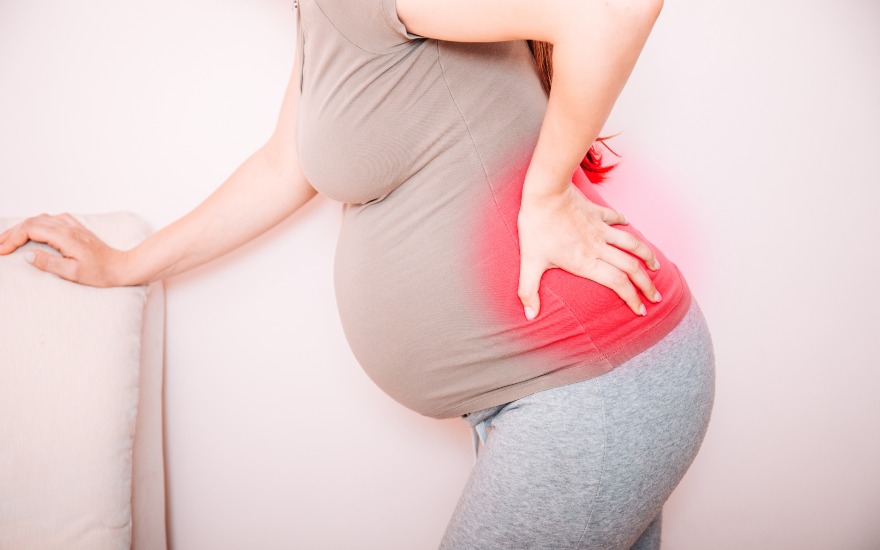Ecco quando è sicuro usare l’arnica in gravidanza e quando, invece, evitarla.
Pregnancy can bring many joys but also many pains, such as back pain, neck inflammation and cramps in different areas of the body. However, in order to protect the unborn child, doctors often advise against taking pain-relieving and anti-inflammatory drugs during pregnancy, or recommend limiting their use.
For this reason, it is not unusual for expectant mothers to favor natural remedies such as arnica-based products. But, can arnica be used during pregnancy? Are there any contraindications in its use or is it a safe plant for a pregnant woman?
This article will help you discover the benefits and possible side effects of using homeopathic products, creams and arnica gels during pregnancy, with a specific focus on breastfeeding, so that expectant mothers can be aware of when to avoid and when to use these natural remedies against pain and discomfort.
Which arnica-based products can be used during pregnancy?

Studies on the use of arnica extracts in pregnancy suggest that the products applied to the skin have a local (topical) effect and are therefore safe for the fetus.
According to these studies, pregnant women can use arnica gels, creams, oils, and ointments directly on the skin without any particular contraindications or side effects (except, of course, for any allergies to the plant or other components of the products).
Based on the same studies, the use of topical arnica products is generally safe even during breastfeeding.
Be careful, however: gels, creams and other products for skin use should not be applied to wounds, scratches and, generally, to injured skins.
Homeopathic remedies derived from arnica extracts are considered safe also for the fetus because the extracts of the plant are extremely diluted. Nevertheless, when ingested, arnica is potentially toxic to the body; it is therefore essential to consult your doctor before ingesting any medication made from the plant extracts.
And so, are there any particular cases when applying arnica to the skin may prove beneficial?
Back pain, neck pain and more: this is when arnica can prove to be a valuable aid for pregnant women
Arnica flowers are rich in flavonoids, triterpenes, sesquiterpene lactones and many other substances beneficial to the human body.
These active ingredients perform several functions as they have an anti-inflammatory, anti-edematous, analgesic, and revulsive (i.e., stimulating circulation in the superficial skin layers) effect.
Carrying out massages with arnica products for skin use is therefore very useful against discomforts that often occur during pregnancy, such as for instance:
- lower back pain and, more generally, back pain
- localized pain in the region of the sacrum
- discomfort and twinges in the shoulder blade area
- neck pain (cervicalgia)
- carpal tunnel syndrome
- intercostal pain
- pain in the hips, ankles and knees
These problems are usually due to normal weight gain during the months of gestation, continuous stresses on the spine, shifting of the center of gravity, and, more generally, changes in pregnant women’s bodies.

Tip: to counteract the joint pain that arises during gestation, devil’s claw creams or gels may also prove useful.
Let us now focus on which arnica preparations would be best not to use during pregnancy and breastfeeding.
Arnica products to be avoided during pregnancy and breastfeeding
If not properly diluted, essential oils and extracts of arnica montana are potentially toxic to the body.
During pregnancy, but also under ordinary conditions, one should never take herbal teas or other “do-it-yourself” preparations containing arnica as these may cause a serious intoxication of both the mother and the unborn child.
Special caution is also required when ingesting arnica orally during breastfeeding.
Scientific literature in this regard is very scarce but an interesting report on a rather worrisome case deserves special attention: a just 9 days old infant developed haemolythic anemia 48 hours after his mother began drinking arnica flower tea.
The baby’s total bilirubin amount was 41 mg/dL, with direct bilirubin levels of 5 mg/dL and hemoglobin levels of 5 g/L. Before this event, the child was healthy and the glucose-6-phosphate dehydrogenase (G6PD) status was normal.
After a targeted therapy, bilirubin levels decreased to 9.9 mg/dL. The mother stopped drinking arnica tea and resumed breastfeeding without the baby experiencing further haemolysis (the process of red blood cell destruction). The hospital staff hence deduced that the infant’s hemolytic crisis had probably been caused by arnica tea. (here, at point 120 of the page, you can view the entire report)
This is so far the only report of arnica side effects due to the passage of the active ingredients through breastmilk. However, great caution should always be exercised.
Final Conclusions
Arnica is an excellent plant for combating muscle and joint pain; it is found commercially in the form of products for skin use and homeopathic medicines.
Studies on the plant suggest that it is possible to use arnica cream, oil, or gel during pregnancy to get relief from discomfort.
Before taking homeopathic medicines based on this natural product, however, you should contact your doctor for advice.
Absolute ban on taking home extracts and “do-it-yourself” remedies based on arnica which,-if not diluted in the correct amounts,-can cause intoxication and other serious problems for both the mother and the unborn child (probably, also the breastfed one).
Sources:
Smith AG, Miles VN, Holmes DT, Chen X, Lei W. Clinical Trials, Potential Mechanisms, and Adverse Effects of Arnica as an Adjunct Medication for Pain Management. Medicines (Basel). 2021 Oct 9;8(10):58. doi: 10.3390/medicines8100058. PMID: 34677487; PMCID: PMC8537440.
Drugs and Lactation Database (LactMed) [Internet]. Bethesda (MD): National Library of Medicine (US); 2006-. Arnica. [Updated 2021 May 17]. Available from: https://www.ncbi.nlm.nih.gov/books/NBK501828/
Miller, A. & Ly, B. & Clark, R.. (2009). Neonatal Hemolysis Associated with Nursing Mother Ingestion of Arnica Tea. Clinical Toxicology. 47. 726-726.
Miller AD, Ly BT, Clark RF., University of California San Diego Medical Center, San Diego, CA, USA; VA San Diego Healthcare System, La Jolla, CA, USA. Neonatal Hemoly



